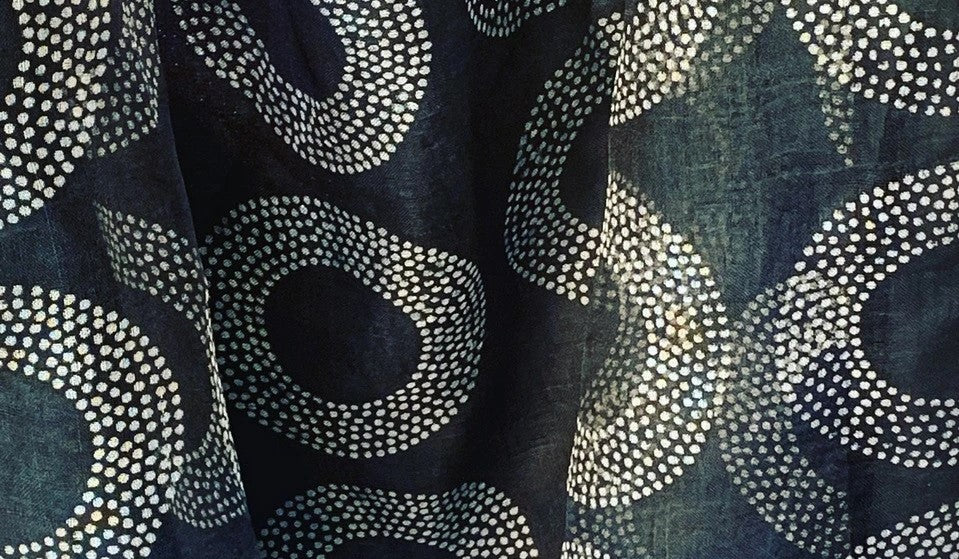
Katazome Printing Workshop

All images: Sarah Desmarais.
In July we will host a virtual workshop on katazome printing with textile designer and maker Sarah Desmarais. Japanese katazome (or stencil dyeing) is a centuries-old method of printing on cloth using paper stencils and a rice paste resist in combination with indigo. It was often used to produce fabric for kimonos. In this workshop we’ll look briefly at the history of the technique and consider ways of designing successfully for the medium. Then participants will use traditional Japanese stencil paper (made with sheets of mulberry paper that have been laminated with fermented persimmon juice and then smoked to become waterproof) to hand cut stencils from their own designs. These will be used to print a repeat pattern onto linen cloth, using a traditional rice paste resist made from sweet rice flour and rice bran. When the resist is dry, the fabric will be dyed with indigo, and then washed out to reveal a white pattern on an indigo ground.

Desmarais is a textile designer maker and crafts researcher. She produces hand-printed textiles with the traditional materials of katazome. Her designs derive from drawing and mark making in a variety of wild and weathered landscapes. Her work celebrates the value of slow making and its potential to contribute to a more sustainable culture of textile production and consumption. Desmarais is the recipient of a 2019 Queen Elizabeth Scholarship Trust award to take part in a research trip to Japan. She has recently undertaken artist residencies with Bow Arts and the Museum of Domestic Design and Architecture, and supervises doctoral research at the Royal College of Art.

The price of the course includes a pack of materials which will be sent to you ahead of the class so that you have everything you need to participate from home. For more information and a list of equipment required, visit our Workshops page.
